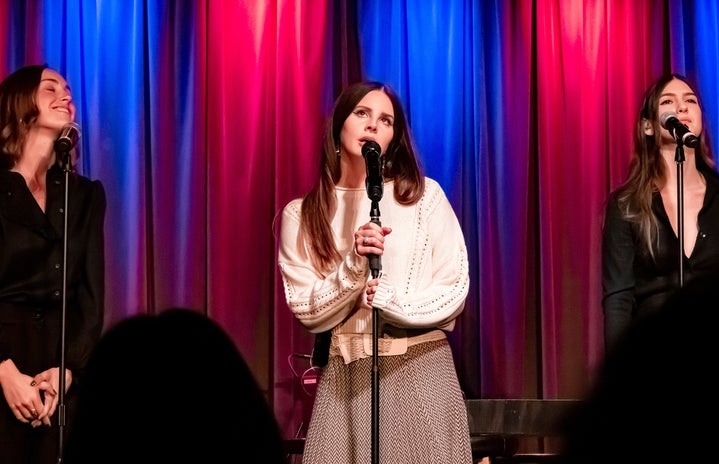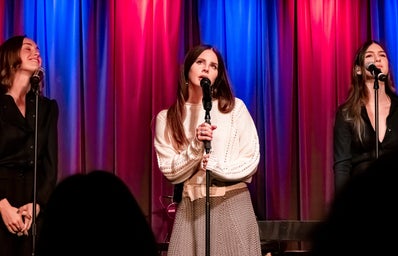For the white and affluent, cancel culture is like the tooth fairy, the Loch Ness monster and rent controlled apartments in NYC — a myth. Celebrities deemed ‘cancelled’ continue to make copious amounts of money and their platforms remain intact. If cancel culture is supposed to do ‘good’ — expose peoples’ racism (and homophobia, xenophobia, etc.), horrific acts of sexual violence and other forms of egregious behavior — why does seemingly nothing happen? Or more importantly, who is actually impacted by cancellation?
I used to buy into cancel culture. As soon as I heard of cancellable offenses, like J.K. Rowling’s transphobia and Lana Del Rey’s problematic behaviors, I stopped engaging with their work. I would never admit to rewatching Harry Potter or listening to Born to Die. I felt like I was taking the moral high ground by pretending they didn’t exist. This was only confirmed by the abundance of online criticism and social pressure aimed at spotlighting celebrities’ flaws and shaming people for continuing to enjoy their beloved books, films and music.
That’s the thing about cancel culture, it seeks to ostracize people without any real form of accountability for their actions. It was heart wrenching to see J.K. Rowling’s transphobic tweets, considering how many lives she’s impacted through Harry Potter and yet, the backlash didn’t seem to have any real consequences. She actually chose to write a book after the controversies, titled, ‘Troubled Blood,’ which had a ‘murderous cross-dresser’ character. The same goes for Lana Del Rey, who was looked up to by many young people, especially on Tumblr circa 2013. After criticizing the media for calling her out on her questionable actions (her unsafe mask-wearing, glamorization of abuse, and most notably her ‘question for the culture’ post mostly aimed at female artists of color), she shows no remorse and is planning to write a ‘revenge’ album aimed at the criticism she’s received.
There are too many ‘canceled’ celebrities to name, particularly when it comes to accusations of sexual violence, but what good does cancel culture do if everyday people, i.e. the people who continue to read Harry Potter and support Del Rey’s new music, are more impacted by the social pressures surrounding cancel culture than the actual people participating in the dangerous behaviors?
I now try to participate in as little of cancel culture as I can. The constant negativity was eating away at my peace, especially when I saw celebrities’ lives unchanged, while the lives of people outside of the limelight were getting destroyed by the cancellation.
Cancel culture never felt like a real solution, as I was often left with more questions than answers:
-
Where is the line between freedom of speech and harm?
-
What does real accountability look like?
-
Does canceling one person actually solve systemic issues?
-
How do we know if people change, we can’t see their intentions or what someone does in private?
The biggest question I had was, what is forgivable? Everyone makes mistakes, “to err is human,” but how do we as a society decide what is okay? More importantly, who decides what is okay? For much of history, one voice was amplified and that singular type of person decided what was okay, and we live the repercussions of that every day via the systems constructed on white supremacy, colonialism, sexism, and many other of society’s ills, that continue to govern the United States.
When thinking about all of this I realized that I don’t know what the “right” answers are. But I do know that I want to stop trying to think of a one-size-fits-all approach and I think other people should do that too. Every situation and person is so different and pretending a person, celebrity or not, doesn’t exist, achieves nothing — it doesn’t ‘correct’ their behavior and it doesn’t make me a better person.
On a micro level, what stemmed from this reflection was thinking about how we treat each other. Life isn’t the ‘Woke Olympics.’ Yes, we should call people out when they say and do harmful and ignorant things, but shouldn’t we also share our knowledge if someone doesn’t know something, instead of making them feel stupid or that they are doomed to a neverending life that doesn’t allow for learning and growth?
Maybe it’s wishful thinking that we can treat each other with more compassion and patience, especially when people actively choose to be hateful. What’s so difficult about cancel culture is the cases when it is well-deserved. I don’t want to forgive people like Harvey Weinstein. How do we know that he wouldn’t continue his behavior if he wasn’t caught? What does it mean to be ‘caught?’ What does he represent? The more I think about cancel culture, the more questions I have: What should we do about people who say racist things and then apologize? Is their heart still racist? What constitutes something as a mistake versus a major flaw of character? Who has the right to forgive certain acts? What even is forgiveness?
These are my ‘questions for the culture.’ Although I don’t have the answers, I think we should all think about and reconsider what ‘canceling’ means to us – what role we play in it, cui bono (who does it benefit), and most importantly what kind of world are we creating where no one is allowed to mess up?



